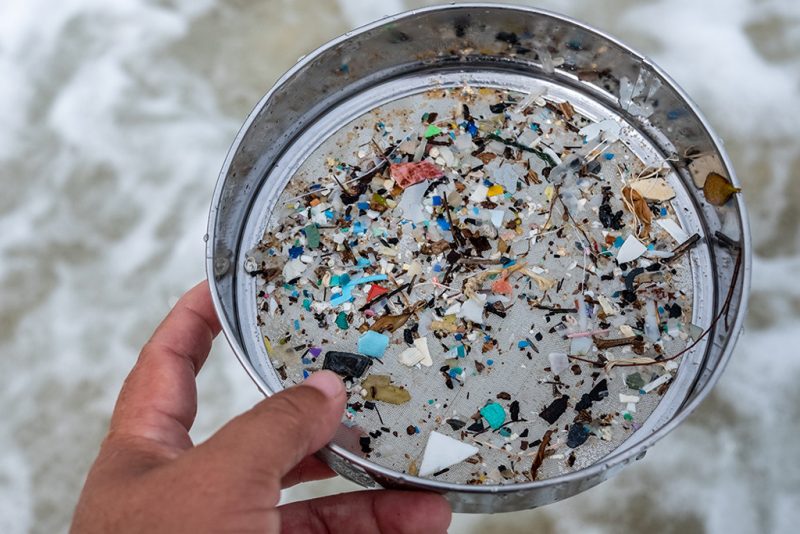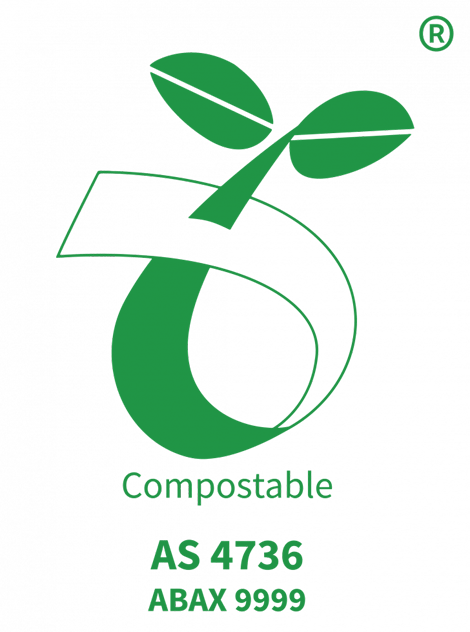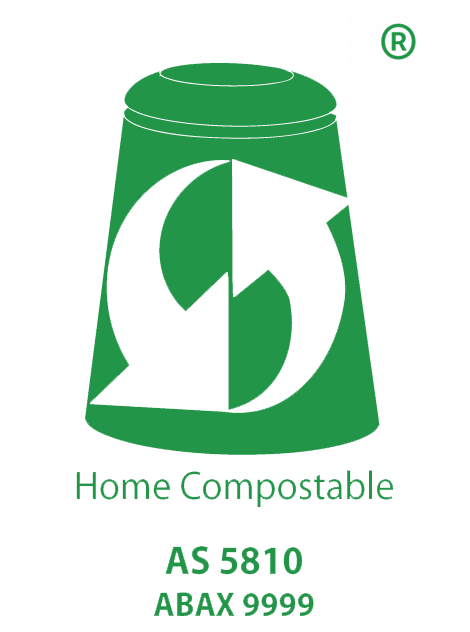
Our previous blog post discussed different options to protect our revegetation projects from predators who find them tasty. However, the guards used to defend our plantings could be creating a new environmental threat.
The downside to many of the tree guards on the market is the materials used to manufacture them. A conscientious installer may remove the guards after the project is complete and the used guards can often be recycled and turned into other great products.
Well, that depends on the materials used to make the guards.
Image: Cleaning up plastic tree guards which, if left on-site, can end up in waterways ultimately polluting the environment.
Plastic tree guards are common. Examples include mesh guards, tree sleeves, or rigid guards. When a plant can survive without protection, the installers should make an effort to remove plastic guards. If left on-site, plastic guards can end up in our waterways or break down into microplastics, polluting the environment we are trying to protect.
Steel mesh guards are a more robust, more durable option compared with plastic guards. They generally last equally as long, if not longer, and can be recycled at the end of their lifespan.
Cardboard guards can be a more environmentally-friendly option. However, the waterproofing on the guards is often a plastic-based coating to give the guard a lifespan long enough to provide sufficient protection for a growing season before it breaks down. While of lower volume than that used in a completely plastic guard, this coating still presents the same environmental issues but on a smaller scale.
Many manufacturers make claims on how plastic products break down. It can be somewhat confusing sorting through these claims. To help provide more clarity, we’ve compiled a list of the most commonly used terms and what they mean.
1) Degradable
With plastic products, the term ‘degradable’ means a product will break down through chemical processes, but not entirely. A degradable plastic product will remain in the environment as microplastics. Fish, crustaceans, and other smaller animals consume these microplastics, eventually making their way up the food chain, affecting more species.
2) Oxo-degradable
These are plastics that are conventional plastic mixed with an additive to accelerate the rate of degradation. Oxo-degradable plastics break down into microplastics and remain in the environment indefinitely. It is for this reason that oxo-degradable plastics are not labelled biodegradable. However, they break down faster than standard plastic products.
3) Biodegradable
Biodegradation means a product will break down into water, carbon dioxide (CO2) and biomass over time with the help of natural micro-organisms. The CO2 emissions from this process are biogenic. Biogenic means the same amount of gas is emitted during decomposition, whether the material is composted or degrades in a natural setting. These emissions are considered carbon-neutral.
Biodegradable products are designed to biodegrade in soil, not water. When they find their way into our oceans, they will still biodegrade but will not break down at the same rate as they would in soil.
4) Marine Biodegradable
Marine Biodegradable products do not require the same level of micro-organisms to break down as Soil Biodegradable products. Marine Biodegradable products break down into water, CO2 and biomass, even in aquatic systems.
5) Bioplastic
This term can be very misleading because it applies to three different types of plastics, one of which is not bio-degradable! The three types of plastics defined as bioplastic include:
As you can see, this term may well apply to a plastic that is non-biodegradable and only partially based upon a bio-based source.
6) Compostable
Compostable means the product is certified to biodegrade under a particular set of parameters and within a specific timeframe. The material that remains after composting is complete provides organic soil. These parameters and the associated certifications used within Australia are as follows:


AS 4736-2006 Industrial Compostable: products with this certification can be composted within an industrial composting facility. These facilities utilise a closely monitored composting process where temperatures are held higher than 55º Celsius, and measured inputs of air, water, and other materials are included.
If a product achieves this certification, it is stamped with the ‘seedling logo’, allowing people to recognise it as industrially compostable and biodegradable.
AS 5810-2010 Home Compostable: products with this certification can be composted in a home composting system. These products can be put in a backyard compost pit and don’t require the same intensity of heat or other measured inputs to biodegrade.
If a product achieves this certification, it is stamped with the home compostable logo, a cup with circular arrows.
4) Marine Biodegradable
Marine Biodegradable products do not require the same level of micro-organisms to break down as Soil Biodegradable products. Marine Biodegradable products break down into water, CO2 and biomass, even in aquatic systems.
5) Bioplastic
This term can be very misleading because it applies to three different types of plastics, one of which is not bio-degradable! The three types of plastics defined as bioplastic include:
As you can see, this term may well apply to a plastic that is non-biodegradable and only partially based upon a bio-based source.
6) Compostable
Compostable means the product is certified to biodegrade under a particular set of parameters and within a specific timeframe. The material that remains after composting is complete provides organic soil. These parameters and the associated certifications used within Australia are as follows:
An excellent article by Lauren Stevens titled ‘Let’s Sort It’ further explores these terms. The article outlines how your tree guards can be correctly disposed of once their job of protecting your tree is complete. Be sure to incorporate post-project ‘tree guard recycling’ into your Revegetation project plan.
Arborgreen has an ongoing commitment to improve the environmental sustainability of our entire range of tree guards. Last month we released our Mallee BioGuard – our first 100% biodegradable tube guard. Watch the video to learn more about our commitment to innovate tree guards to be more sustainable.
South Australia
18 Follett Close
Mount Barker SA 5251
New South Wales
14 Rennie Street,
Wetherill Park, NSW 2164
Victoria
56-60 Woodlands Drive,
Braeside, VIC 3195
Phone 1300 760 642
Prompt Australia-wide Delivery
Free* freight on all orders over $400+gst to anywhere in Australia
*excludes bulky items